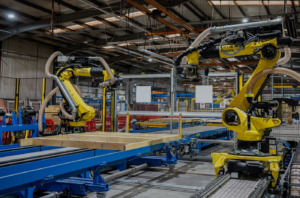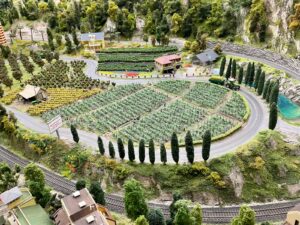Real sustainability starts at the local level
There’s a lot in the press these days about quality of life in England – post mortems around the summer riots, debates about the planning laws and ‘sustainable development’, the impact of financial disasters elsewhere.
Government says at one point ‘spend your savings, because we need to support the shops’, and at another point ‘keep building up your savings or you’ll having nothing to support your old age’, while following a long-term trend of selling the family silver – looks like the English countryside may be next – to keep the money trudging round and pay off ‘sovereign debt’. Greece isn’t the only nation that’s been living on plastic credit, it seems.
It’s all very topical and there’s a lively debate, but what is the real solid ground for the future?
What rich or poor, old or young surely want from this country is the realistic prospect of a good future for themselves and their families. There is only so much any government can do from Whitehall and in any high-level tinkering there will always be winners and losers.
At a local level, it can be much clearer what a local town or community needs in order to be resilient in the face of change – usually a range of things, not one – and it seems to me that positive local steps towards these are a much more engaging and hopeful way to proceed than negative national steps.
There are a number of joined up approaches to real local sustainability developing around the country – neighbourhood management, transition towns in practice (peak oil or no peak oil), breaking cycles of deprivation, early intervention – but it’s still complex, and some issues will take 20 years rather than the five-year span of an elected government. So let’s get real at a local level, and not be distracted by apparent quick fixes or strategic sound bites. Here are some initial thoughts:
• Working with local firms to help promote the employment of local people may be difficult, but is a start (and can reduce traffic levels as a bonus). There’s a good potential base in local children’s centres (let’s keep them going) for linking people to local firms through advice, information exchange and training
• Connecting opportunities across public, private, voluntary and community sectors is a particular skill. There are over 1,000 ex-SRB regeneration officers out there with similar experience, let alone workers from other regeneration and development schemes. Let’s find the many ways to get them involved not only in direct local action but also in advising and supporting the 850 local parish councils and other community groups already in place, and sharing good practice – the third sector body Locality is beginning to do this. Then we can be clear with government which issues can’t be solved locally and need central support
• Good parenting has been a regular debate over the years, but simply saying ‘I blame the parents’ doesn’t get us anywhere. In particular it doesn’t change a three-generation trend since the cult of the individual really got going in the 1960s. However, combining local resources to give long-term support to really vulnerable local families can show great benefits
You’ll notice a common trend of combining local resources runs through all the above. And there still are local resources – let’s look at how our rates are spent, for example, are we getting what we really need? How much new housing do we really need, who benefits?
And incoming developments – will they use local materials, local labour, support local employment and training – and is there an opportunity cost to the use of the site, might greater long-term benefits flow from a different approach? Is there a net benefit to the local economy, or is this just about seeking private profit or even following some high-level macroeconomic theory without thought to local consequences? Who thinks any development is good, as the benefits then trickle down to the poor in society – tell that to the people of Toxteth after 30 years of much-vaunted development in nearby Liverpool.
(Incidentally, I darkly suspect that anybody who thinks sustainability is more about ‘the market’ than local people is more interested in top-down than trickle-down, and don’t get me started on pretty new buildings – whenever I see another empty block of new office sheds on a green field I wonder if people really think the 1980s boom never went away).
In a complex world, with government at all levels under huge pressure, let’s get involved locally to make sure the right decisions are made.















